Thorough 4 Point Inspection for Reliable Home Assessments
Request a Free Quote
Book A Call
Receive Insurance Discounts To Further Save Costs
Many insurance companies in Florida offer discounts for homes that pass a 4-point inspection. This is because a 4-point inspection identifies potential risks and hazards, which can reduce the likelihood of insurance claims in the future.
A wind mitigation inspection can help homeowners qualify for insurance discounts on their homeowner’s insurance premiums. Insurance firms offer discounts for homes that have certain wind-resistant features. Get the inspections done today by certified professionals with an accurate analysis and receive appropriate insurance discounts to reduce your expenses.


Early Detection Of Issues Prevent A Bigger Future Damage
A 4-point inspection can detect potential problems with a home’s electrical, plumbing, HVAC, and roofing systems before they become major issues.
This can save you money in the long run by allowing you to make repairs before more extensive damage occurs. For instance, a 4-point inspection can identify issues such as outdated wiring or overloaded circuits that could lead to electrical fires, leaky pipes or clogged drains, and also leaks or damage from storms. With professional threshold inspectors, all the problems (if any) get detected early on, and you get them repaired before it turns into something bigger and more expensive.
Professionals That Help You Comply With The Insurance Requirements
Insurance companies require a 4-point inspection before they provide coverage for a home. Having a 4-point inspection done can ensure that a home meets these requirements and is eligible for insurance coverage.
Along with that, a wind mitigation inspection can help ensure that a home meets Florida’s strict building codes for wind-resistant construction. This can provide you with reassurance that your home is built to withstand high winds and severe weather. If you are looking for a threshold inspector, you can contact our team and we’ll provide you with a free 30-minute consultation and help you with your requirements.


Make Your Property Withstand All Severe Weather Conditions
In Florida, the likelihood of severe weather such as hurricanes and tropical storms is high. Therefore, taking measures to protect homes from such weather conditions becomes essential. One way to do so is by conducting a wind mitigation inspection that evaluates a home’s structure, identifies any possible vulnerabilities, and recommends improvements, making the property more resistant to high winds and severe weather.
This inspection can potentially save homeowners from damage and offer valuable security and peace of mind.
Trusted by Companies and Homeowners Associations







Our Wind Mitigation And 4 Point Inspection Services Include

Electrical system
We inspect electrical panels, wiring, and outlets to ensure compliance with safety codes and optimal functionality.
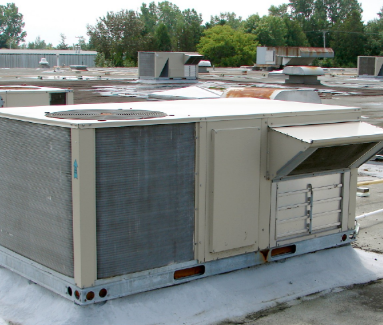
HVAC system
Our service evaluates the performance and efficiency of heating, cooling, and ventilation systems to ensure proper air quality and temperature control.
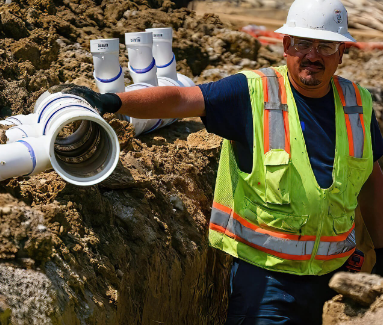
Plumbing system
Our inspections cover all aspects of plumbing systems including pipes, drains, and fixtures to identify any leaks or malfunctions.

Roofing
Our team evaluates the condition of the roof, checking for wear and tear, damage, and potential leaks.
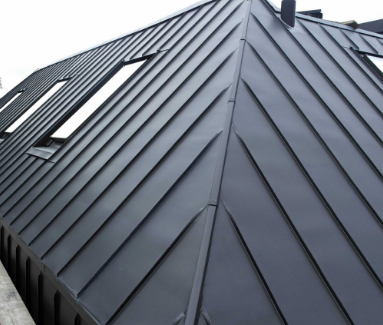
Roof shape and covering
We assess the roof’s shape and covering material to ensure that it is appropriate for the building’s location and weather conditions.

Roof deck attachment
We inspect the attachment of the roof deck to the structure to ensure it meets safety requirements and is properly secured.

Roof-to-wall attachment
Our service verifies the strength of the roof-to-wall attachment to ensure it can withstand high winds and storms.

Gable end bracing inspection
We check the gable ends of the roof to ensure proper bracing is in place to prevent collapse in high winds.
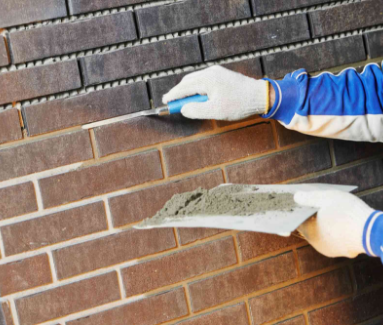
Wall construction type
Our inspections evaluate the type and quality of materials used in wall construction to ensure structural integrity.
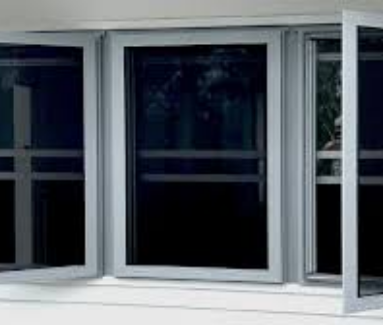
Window and door opening protection
We inspect the protection measures in place for windows and doors to ensure compliance with safety codes and protect against weather damage.

-
2478+
Projects Completed
-
5,454
Inspections
-
1789+
Permits Approved
-
289+
Violations Legalized
Why Choose Souffront?
Experienced and Licensed Inspectors
We have a team of experienced threshold inspectors (also known as Special Inspectors) who understand the complex requirements of 4 point and wind mitigation inspections. They have an in-depth knowledge of local building codes and regulations and can provide you with a thorough and accurate assessment of your property.
Comprehensive and Accurate Reports
Our engineers provide detailed reports that include all the information required by insurance companies and regulatory agencies. The reports are easy to understand and provide a broad overview of the condition of your property, helping you make informed decisions about any necessary repairs or upgrades.
Competitive Pricing
We understand that cost is an important factor when it comes to choosing a 4 point wind mitigation inspection service. That’s why we offer competitive pricing without compromising on the quality that we will provide. Our rates are transparent and we provide a detailed breakdown of all costs upfront, so there are no surprises.
Thorough and Meticulous Inspection
Our team of inspectors carries out a comprehensive examination of the four primary systems of the structure, encompassing electrical, plumbing, HVAC, and roofing, and employs cutting-edge equipment to detect any conceivable problems and guarantees that your property complies with all regulations.
Protect Your Investment – Schedule A 4-Point Inspection
Ensure safety and compliance with our thorough four-point assessments. Get a clear picture of your property’s condition. Reach out to our qualified inspectors and stay protected.
Request A Quote
Our 5-Step Process Includes
Contact us
You can call us on our phone number or send us an email. We will be happy to answer any questions you may have and schedule an appointment for the inspection.Schedule an Inspection
Once you have contacted us, we will schedule an appointment for the inspection at a time that is convenient for you. Our team will arrive on time and fully equipped to carry out the inspection.Inspection process
The inspection will cover four main areas: roofing, plumbing, electrical, and HVAC systems. We will also conduct a wind mitigation inspection to evaluate the structural integrity of your property and assess its ability to withstand strong winds.Report
The report will include any issues that were identified, as well as recommendations for repairs or upgrades that may be necessary to improve the safety and integrity of your property.Follow-up
Our team will follow up with you to discuss the findings of the inspection and answer any questions you may have. We will also provide you with a copy of the inspection report for your records.Comprehensive 4-Point Inspection Services
Request a Free Quote
Recertification Request a Free Quote
"*" indicates required fields
Frequently Asked Questions
What is a 4 point inspection?
Why do insurance companies require a 4-point inspection?
Insurance companies require a 4-point inspection report for several reasons. Firstly, the report provides insurers with an accurate assessment of the condition of four critical components of a property: the roof, electrical system, plumbing system, and HVAC (heating, ventilation, and air conditioning) system. These components are essential to the safety and functionality of any property.
Insurance companies also use the information gathered to determine the level of risk associated with insuring a particular property. If any of these four components are outdated or in poor condition, they may pose a higher risk for potential claims in the future. Therefore, insurers may require additional premiums or deny coverage altogether.
Not just that, the 4-point inspection analysis helps insurers identify any potential hazards that could lead to accidents or injuries on the property. For example, outdated electrical systems or faulty plumbing can cause fires or water damage that could result in costly claims.
What does a 4-point inspection cover?
Heating, Ventilation, And Air Conditioning (HVAC)
The heating, ventilation, and air conditioning (HVAC) system is a crucial component of your home's climate control. If the HVAC system is improperly installed or outdated, it can lead to poor air quality and dust accumulation, which can cause health problems if not addressed. During an inspection, a licensed inspector will evaluate the HVAC unit for several factors. The homeowner must have a fully functioning heating and cooling unit that is appropriately sized to pass the inspection. It's important to note that fireplaces, oil furnaces, and window AC units are not considered primary heating and cooling units due to safety concerns and energy inefficiency. While the condition and age of the HVAC unit do not pass/fail the criteria for the inspection, they are still reviewed. The inspector will assess the life expectancy of the unit based on these factors and determine how well-maintained it is. As long as there are no apparent issues with the system, there should be no cause for concern.
Electrical Wiring And Panels
During the inspection of your electrical system, the inspector's primary focus will be to ensure that everything complies with the code regulations. This includes checking that all electrical outlets are grounded correctly and that the system's size is appropriate for the size of your home.
If any issues or code violations are discovered during the inspection, it is still possible to pass, depending on the severity of the violation and the potential risks associated with it. However, there are certain components of an electrical system that cannot be insured and will result in an inspection failure. These include aluminum branch wiring, knob-and-tube wiring, fuses/fuse boxes, double-tapped breakers, and cloth and sheath wiring.
Plumbing Connections And Fixtures
When a licensed inspector inspects a home's plumbing system, they will assess the drain and supply lines' material and age in the entire house. They will also scrutinize for any indications of leakage. Additionally, they will examine the water heater's present state to verify its efficient distribution of water throughout the house.
Roofing
During a home inspection, the roof is given the most thorough examination due to its crucial role in the overall structure of the building. A well-designed roof not only enhances energy efficiency but also helps prevent mold accumulation. Inspectors are on the lookout for any potential safety hazards that could jeopardize the integrity of the home and the well-being of its occupants.
During a roofing inspection, there are several factors that inspectors take into account.
The age of the roof is one of the primary considerations. Roofs, like other parts of a house, have a finite lifespan. After about 20 years, it is recommended that the roof be replaced to avoid issues such as missing, curled, or cracked shingles that may arise.
Signs of wear and tear are also looked for by inspectors. Older or poorly designed roofs may develop pools of water on their surface, which can lead to water damage. Inspectors will be on the lookout for any visible signs of roofing damage that could compromise the safety of the home.
Leaks are also a major concern during a roofing inspection. Inspectors will check for potential leakage issues since roof deterioration can cause leaks in your home, resulting in costly damage.
Along with these, the shape of your roof plays a crucial role in your home's ability to withstand various weather conditions. Hip roofs are currently the most popular choice for protection against high winds and snow.
How long does a 4-point inspection take?
As a threshold inspector in Florida, the duration of a 4-point inspection can vary depending on several factors. Typically, the inspection takes between thirty minutes and an hour and a half to complete. However, the time taken can be influenced by the size of the property, the complexity of the systems being inspected, and any issues that may arise during the inspection.
How much does a 4-point inspection cost?
As a threshold inspector in Florida, the cost of a 4-point inspection can vary depending on several factors. Typically, the cost ranges from $50 to $200, depending on the size of the property and the complexity of the systems being inspected. However, it is important to note that some insurance companies may cover the cost of the inspection as part of their policy requirements. It is recommended that homeowners check with their insurance provider to determine if they offer any discounts or coverage for 4-point inspections.
What is a wind mitigation inspection?
A wind mitigation inspection is an assessment of a building's ability to withstand high winds and storms. This type of inspection is particularly important in Florida due to the state's susceptibility to hurricanes and other severe weather events.
During a wind mitigation inspection, a qualified inspector will evaluate various aspects of the building's construction and design that can impact its ability to withstand high winds. These include the roof covering, roof deck attachment, roof-to-wall connections, wall construction type, window, and door protection, and the presence of any secondary water barriers.
The results of a wind mitigation inspection can be used by insurance companies to determine the level of risk associated with insuring a particular property. In some cases, homeowners may be eligible for discounts on their insurance premiums if their property is found to have certain wind-resistant features.
Why do insurance companies require a wind mitigation inspection?
The primary reason for this requirement is to assess the risk of damage caused by high winds during a storm or hurricane.
A wind mitigation inspection evaluates the structural integrity of a building's roof, walls, windows, and doors. It also examines the materials used in construction and the methods employed to secure them. Based on the findings of the inspection, insurance companies can determine the likelihood of damage occurring during a windstorm and adjust their coverage accordingly.
In Florida, where hurricanes are common, insurance companies are required by law to offer discounts on premiums for homes that have undergone a wind mitigation inspection and meet certain criteria. This incentivizes homeowners to take steps to protect their homes from wind damage and helps insurance companies manage their risk.
How much does a wind mitigation inspection cost?
The cost of a wind mitigation inspection can vary depending on several factors such as the size and age of the property, its location, and the complexity of the inspection.
On average, a wind mitigation inspection can cost anywhere from $75 to $150. However, some companies may charge more for larger properties or if additional inspections are required. It is important to note that the cost of a wind mitigation inspection can be offset by potential savings on insurance premiums.
It is recommended that property owners obtain quotes from multiple certified inspectors to ensure they are receiving a fair price for the inspection. Additionally, it is important to choose an inspector who is licensed and experienced in conducting wind mitigation inspections to ensure accurate results.
How to pass a 4-point home inspection
To pass a 4-point home inspection, it's essential to understand the four critical components included in the inspection process. These components are the roof, plumbing, electrical, and HVAC (heating, ventilation, and air conditioning) systems. Some tips to ensure you pass your 4-point home inspection.
- Roof:
Ensure that your roof is free from leaks and damages. Check for missing, broken, or cracked shingles, and replace them if necessary. Keep the gutters clean and remove debris that can damage the roof. - Plumbing:
Check for any leaks in the plumbing system, including pipes, fixtures, and appliances. Inspect the water heater for rust, leaks, and other damages. Ensure that the shut-off valves are working correctly. - Electrical:
Ensure the electrical system is up to code and safe. Check for frayed, damaged electrical wires and cords, and replace them if necessary. Make sure that all outlets, switches, and light fixtures are functional and free from any damages. - HVAC:
Ensure the HVAC system is in good working order. Inspect the air conditioner and heater for leaks, damages, and any other issues. Clean or replace air filters to maintain optimum performance.
Ensure the inspector you work with helps in following these and you’ll be good to go.
What Other Inspection Services Do You Offer?
Apart from 4 point inspection we also offer a range of specialized inspections designed for various requirements. This includes:
40 Year Building Recertification: Ensures compliance and safety for old buildings nearing the 40 year mark.
Structural Building Inspection: Assesses overall structural integrity of a building.
Milestone Building Inspection: Evaluates load-bearings, walls, and other elements.
Infrared Thermographic Inspection: Uses thermal imaging technology to identify problem areas.
Threshold Building Inspection: Examines vital components in all buildings three stories or higher.
Seawall Inspection: Comprehensive evaluation of seawall's condition and structural integrity.
Structural Glazing Inspection: Detailed examinations of accessible sealant joints to verify sealant adhesion.
Check Out Our Instagram
Follow Us @Johnsouffront
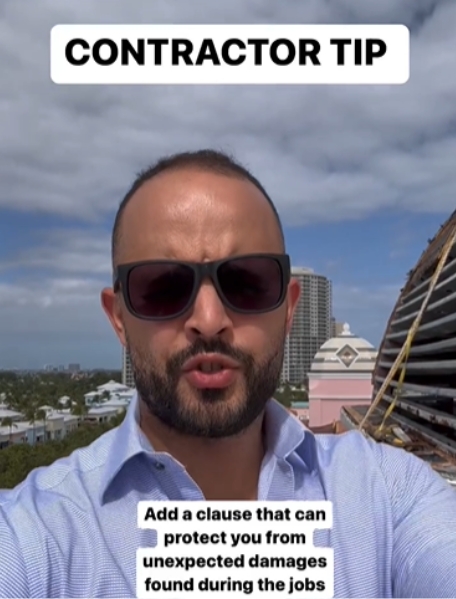



Expert 4-Point Inspection – Your Property’s Safety Matters
Need a reliable construction and inspection partner? Let’s discuss how we can help.
Request a quote